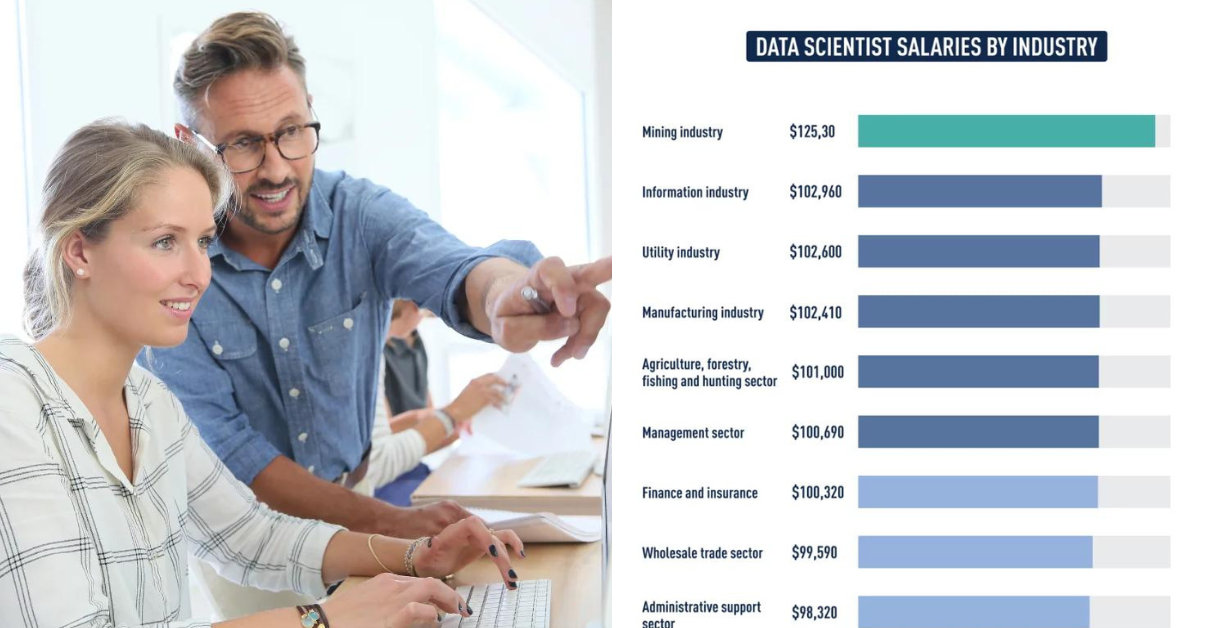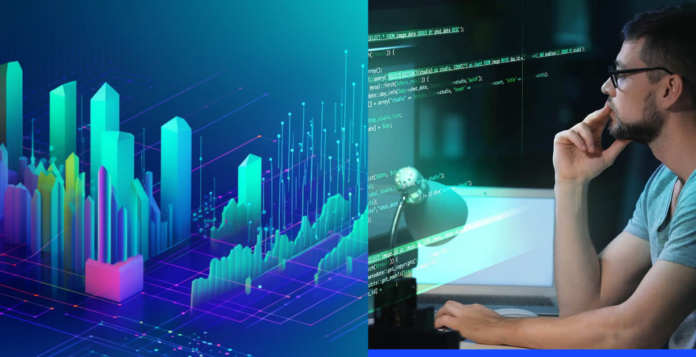Depending on your starting place, past experience, and learning intensity, you can understand how long does it take to become data scientist. Becoming a data scientist might take a variety of timeframes. Typically, gaining the requisite expertise in fields like data analysis, machine learning, statistics, and programming might take several months to several years.
how long does it take to become data scientist
Self-study, online classes, boot camps, or formal education—like a degree in data science or a similar field—are frequently used for this. Furthermore, learning can be accelerated through projects and internships that provide real-world experience.
It is challenging to determine an exact time frame for becoming a data scientist because there are many variables that affect this process. Below is a summary of many situations:
Official Schooling:
Four years for a bachelor’s degree in data science
One to two years for a master’s degree in data science (usually requires a bachelor’s in a related discipline)
Boot camps:
3-6 month intensive boot courses in data science. 6–12 months for part-time data science boot camps.
Self-directed education:
Extremely variable: 6–18 months (or longer), according on your commitment, background knowledge, and selection of study materials.
Crucial elements to take into account:
Previous experience: Learning can be sped up considerably if one has prior understanding in programming, statistics, math, and similar subjects.
Learning intensity: It goes without saying that putting in more time and effort to study will hasten the process.
Learning resources: Selecting top-notch classes, boot camps, or mentors can significantly increase the effectiveness of learning.
Career objectives: Senior roles demand more experience and knowledge, whereas entry-level positions may be attained more quickly.

Read more
what degree do you need to be a data scientist
how many years to become a data scientist in usa
can you become a data scientist without a degree
The following general timelines are based on several beginning points:
12–18 months (via bootcamps or intense self-learning) in the absence of prior experience
Six to twelve months of relevant experience (bootcamps or concentrated self-study)
three to six months for a bachelor’s degree in a comparable discipline (bootcamps or concentrated self-learning)
1-3 months for a master’s degree in a similar discipline (networking and use of prior knowledge)
Please note that individual journeys may differ from these estimations. The secret is to concentrate on learning the required skills and developing a solid portfolio via assignments and independent work. I wish you luck as you pursue data science!
The learning curve may be shortened for someone with a background in computer science, mathematics, or statistics since they may already have a firm grasp of many of the essential ideas related to data science. Conversely, people with non-technical backgrounds might have to invest more time in learning the fundamentals of subjects like mathematics, statistics, and programming.
You are reading how long does it take to become data scientist. Secondly the method used to gain data science skills affects how long the learning process takes. Some people decide to go to school and earn a degree in computer science, data science, or a similar discipline.
A comprehensive curriculum covering topics like statistics, machine learning, data visualisation, data ethics, and programming languages (such as Python and R) is typically provided by these courses. Although completing a degree programme can take several years, it provides access to materials and an organised study environment with knowledgeable professors.

There are many opportunities and challenges in the profession of a data scientist. In order to succeed, one needs to be dedicated, tenacious, and ready to pick up new abilities and adapt to evolving techniques and tools. While there isn’t a predetermined length of time to become a data scientist, most applicants have varying backgrounds and levels of expertise. The journey could take several months or years, depending on several factors.
Aspiring data scientists frequently choose independent study that is enhanced by internet tools, tutorials, and courses. People can learn at their own pace by accessing a wide variety of courses covering different topics of data science on platforms such as Coursera, Udemy, and DataCamp. Furthermore, as intense, immersive programmes that provide students with real-world experience in a shortened period of time—typically a few months to a year—data science bootcamps have grown in popularity.
Furthermore, developing practical experience via projects, industry-related employment, or internships is essential for refining data science abilities and assembling a portfolio. In addition to strengthening theoretical knowledge, working on real-world issues develops problem-solving skills as well as teamwork and communication abilities, all of which are critical for success in the profession.
The length of time required to become a data scientist varies based on a variety of factors, such as prior knowledge, learning style, and level of practical experience. Regardless of strategy, two essential components for success in this dynamic and quickly changing sector are a dedication to lifelong learning and a love of investigating and interpreting data.















